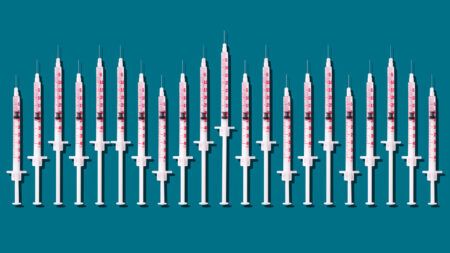SAN DIEGO — A diet low in the amino acid glutamate may ease migraines, a small study suggests. A month of staying away from high-glutamate foods led to fewer migraines in a group of 25 people with Gulf War Illness.
The specifics of these veterans’ migraines, part of a collection of symptoms resulting from the Gulf War, may differ from those of other people who suffer from migraines. But if the underlying relationship between glutamate and migraines is similar, the diet could help the estimated 1 billion people worldwide who have migraines.
Current drugs for treating migraines, including a new class of compounds that block a chemical messenger called CGRP, can help. But existing drugs don’t work for everyone, says neuroscientist Ian Meng of the University of New England in Biddeford, Maine. A dietary change could be a low-risk and accessible way to bring relief.
Glutamate is both a signal that excites nerve signals in the brain and an amino acid found in tomatoes, processed meats, aged cheese, mushrooms and, of course, monosodium glutamate, or MSG. For a month, 25 veterans of the Gulf War ate a low-glutamate diet full of whole fruits and veggies and avoided high-glutamate foods including soy sauce, mushrooms and ultraprocessed foods.
Before this diet, 64 percent of these people reported having a migraine in the previous week. After a month of a low-glutamate diet, that number dropped to about 12 percent, neuroscientist Ashley VanMeter said November 16 in a news briefing at the annual meeting of the Society for Neuroscience. After the one-month diet ended, 88 percent of the people in the study chose to remain on the diet. “They feel that [the diet] is definitely benefiting them,” said VanMeter, of Georgetown University in Washington, D.C.
Accompanying brain scans showed that part of the visual system toward the back of the brain was thinner after the diet, suggesting that this neural change might be involved in the migraine reduction.
Glutamate in the diet doesn’t usually reach the brain; the amino acid is held at bay by the blood-brain barrier. But for some people, this barrier can leak and let glutamate through, the researchers suspect. This influx of glutamate could be activating nerve cells in a way that leads to migraines.
It’s not clear whether a low-glutamate diet might help people with migraines who don’t have Gulf War Illness. But trying to cut down on glutamate might be worth a shot, Meng says. “Here you’re changing your diet. So you’re not taking a drug to treat it,” he says. “You know, why not try it? There’s no risk to it.”
VanMeter and colleagues are launching a study, probably in January, to examine the diet’s effects in people with migraines but without Gulf War Illness.
Read the full article here

















